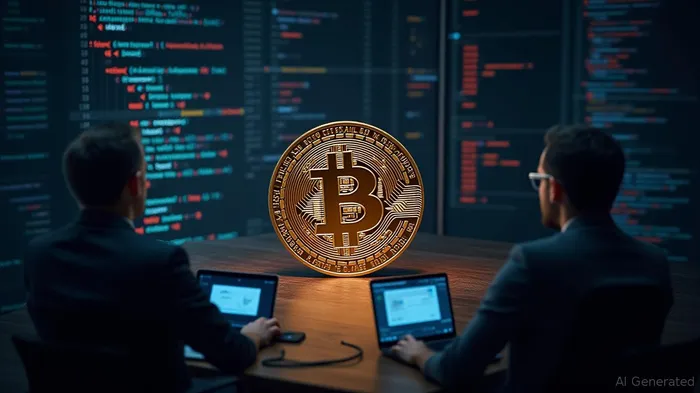Bitcoin Core Developers Advocate for User-Driven Network Policies Amid OP_Return Debate
The Bitcoin community is at a critical juncture as 31 core developers released a joint statement addressing the transaction relayRLAY-- policy amidst the contentious OP_Return debate. This collective stance underscores Bitcoin’s censorship-resistant nature and the challenges of regulating non-monetary data usage on the network. The Bitcoin Core Project emphasized that "Being free to run any software is the network’s primary safeguard against coercion," highlighting the developers’ commitment to user autonomy.
Bitcoin core developers advocate for user-defined network policies amidst the OP_Return controversy, focusing on transaction relay and censorship resistance. The recent joint statement from Bitcoin core developers marks a significant moment in the ongoing debate over the network’s transaction relay policy, particularly concerning the use of OP_Return for non-financial data. The developers emphasize that Bitcoin is fundamentally a network defined by its users, and as such, the core contributors are “not in a position” to impose mandates on software or policy choices. This perspective reflects a broader philosophy of decentralization and user sovereignty, which are central to Bitcoin’s design.
By advocating a hands-off approach, the developers acknowledge the technical reality that Bitcoin’s censorship-resistant architecture inevitably allows for diverse use cases, some of which may be controversial. The statement clarifies that this is not an endorsement of non-monetary data usage but rather an acceptance that such usage is an inherent feature of the system’s open nature. This approach aims to preserve the network’s integrity while respecting the freedom of participants to determine their own transaction policies.
The statement has elicited mixed reactions within the Bitcoin community. While many users expressed support through “ACK” comments, others voiced strong objections. Notably, one critic described the developers for what he described as a passive acceptance of spam transactions, arguing that the network’s gradual changes have facilitated spam and lowered barriers for non-financial data. His critique underscores a faction within the community concerned about potential network bloat and the dilution of Bitcoin’s original purpose as a peer-to-peer electronic cash system.
Conversely, another supporter defended the developers’ position, emphasizing that the statement provides much-needed clarity and cohesion in messaging from the core team. He highlighted that previous fragmented communications led to accusations of poor public relations, and the jointJYNT-- statement represents a transparent articulation of the developers’ stance on relay policy and network health.
The developers’ letter outlines the technical rationale for their approach to transaction relay. They argue that Bitcoin node software should focus on realistically predicting which transactions will be included in the next block rather than attempting to censor or discourage transactions that are technically harmless. This strategy aims to optimize block propagation speed and improve miners’ ability to identify fee-paying transactions, thereby enhancing overall network efficiency.
However, this position is not without its critics. One Bitcoin core developer challenged the goals of the relay policy, labeling them as misguided. He contended that predicting mined transactions promotes centralization, accepting spam transactions as inevitable is defeatist, and facilitating spam propagation is detrimental to the network. These critiques highlight ongoing tensions between maintaining network openness and protecting against potential spam or misuse.
The debate surrounding the transaction relay policy and OP_Return usage encapsulates broader challenges facing Bitcoin’s evolution. On one hand, the developers’ commitment to user autonomy and censorship resistance aligns with Bitcoin’s foundational principles. On the other, concerns about network spam and the preservation of Bitcoin’s primary function as a digital currency remain pressing.
As the community navigates these complexities, the dialogue underscores the importance of transparent governance and technical prudence. The developers’ joint statement serves as a call to users and miners alike to engage thoughtfully with the network’s ongoing development, balancing innovation with the preservation of Bitcoin’s core values.
The Bitcoin core developers’ joint statement on transaction relay policy reinforces the network’s decentralized ethos by prioritizing user choice and resisting top-down mandates. While this stance invites debate over non-financial data usage and spam, it ultimately reflects a pragmatic approach to maintaining Bitcoin’s censorship resistance and network health. Moving forward, continued community engagement and technical scrutiny will be essential to uphold Bitcoin’s integrity and adaptability in a rapidly evolving ecosystem.

Quickly understand the history and background of various well-known coins
Latest Articles
Stay ahead of the market.
Get curated U.S. market news, insights and key dates delivered to your inbox.



Comments
No comments yet